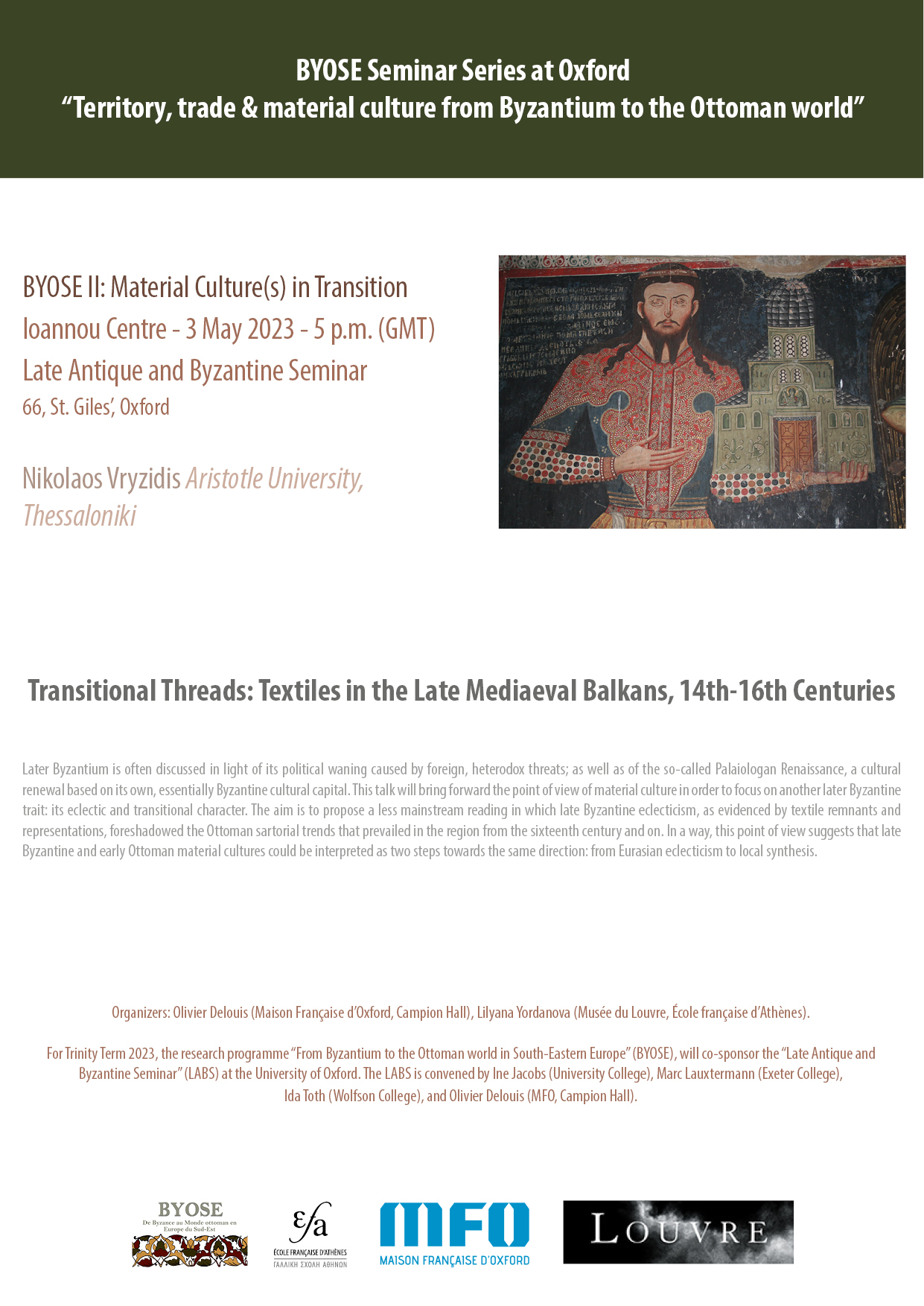Ioannou Centre – 66, St. Giles’, Oxford
Transitional Threads: Textiles in the Late Mediaeval Balkans, 14th-16th CenturiesNikolaos Vryzidis Aristotle University, Thessaloniki
BYOSE Seminar Series at Oxford
“Territory, trade & material culture from Byzantium to the Ottoman world”
Ioannou Centre, Wednesdays, 5 pm (GMT)
Organizers: Olivier Delouis (Maison Française d’Oxford, Campion Hall), Lilyana Yordanova (Musée du Louvre, École française d’Athènes).
For Trinity Term 2023, the research programme “From Byzantium to the Ottoman world in South-Eastern Europe” (BYOSE), will co-sponsor the “Late Antique and Byzantine Seminar” (LABS) at the University of Oxford. The LABS is convened by Ine Jacobs (University College), Marc Lauxtermann (Exeter College),
Ida Toth (Wolfson College), and Olivier Delouis (MFO, Campion Hall).
The BYOSE Seminar Series at Oxford will be devoted to the examination of space as a product of various social activities, from devotion and imagination to consumption and trade of goods. How quickly do the shift in mentalities and the re-appropriation of rural and urban landscapes occur compared to political changes in a transition phase? What is the part of innovation, conservatism or resistance in the territories concerned by the shift of powers?

